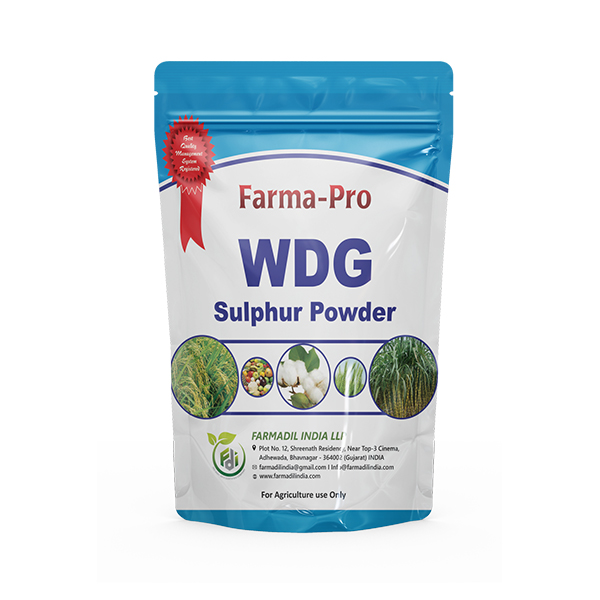Sulphur WDG 80%
Nitrogen (N), phosphorus (P) and potassium (K) are critical components of a well-fertilized crop. But to achieve yields and more nutritious foods, crops need sulphur (S).
Role of Sulphur in Plant Growth and Development
Sulphur is one of the 17 essential plant nutrients.
- It is essential for the growth and development of all crops, without exception.
- Like any essential nutrient, sulphur also has some key functions in plants:
- Formation of chlorophyll that permits photosynthesis through which plants produce starch, sugars, oils, fats, vitamins and other compounds.
- Synthesis of oils. This is why adequate sulphur is so crucial for oilseeds
- Activation of enzymes, which aid in biochemical reactions in the plant.
- Increases crop yields and improves produce quality, both of which determine the market price a farmer would get for his produce.
- With reference to crop quality, S improves protein and oil percentage in seeds, cereal quality for milling and baking, marketability of dry coconut kernel (copra), quality of tobacco, nutritive value of forages, etc.
- It is associated with special metabolisms in plant and the structural characteristics of protoplasm.


